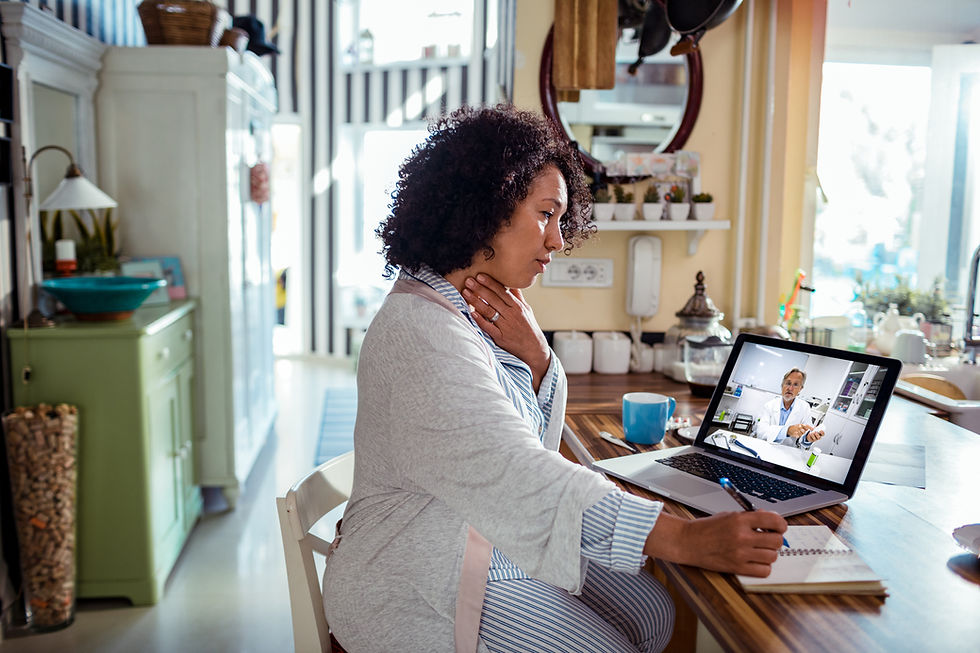Embracing the Virtual Shift: Why NHS Patients Prefer Video Appointments Over Face-to-Face Consultations
- shanebarry09
- Jan 26, 2024
- 2 min read
In recent years, the NHS has witnessed a significant transformation in patient-doctor interactions, with a growing preference for virtual appointments via video calls over traditional face-to-face consultations. This shift has been fueled by various factors, ranging from convenience and accessibility to safety concerns, reflecting a changing landscape in healthcare delivery.
1. Accessibility and Convenience:
One of the primary reasons patients are gravitating towards virtual appointments is the unparalleled convenience they offer. Gone are the days of lengthy commutes, waiting room delays, and the hassle of finding parking spaces. Patients can now connect with their healthcare providers from the comfort of their homes, saving time and reducing stress.
"I used to dread the commute to the clinic, especially with my health condition. Now, I can easily consult my doctor without leaving my house. It's a game-changer!" - Emma, NHS Patient
2. Safety and Public Health Concerns:
The global COVID-19 pandemic has undoubtedly accelerated the adoption of virtual appointments, as patients prioritize their safety and adhere to social distancing guidelines. Video consultations provide a secure alternative to in-person visits, reducing the risk of exposure to infectious diseases.
"Given the current situation, I feel safer having my appointments online. It's reassuring to know that I can still access healthcare without putting myself at unnecessary risk." - James, NHS Patient
3. Flexibility in Scheduling:
Virtual appointments offer unprecedented flexibility for both patients and healthcare providers. Patients appreciate the ability to schedule appointments outside of traditional working hours, allowing them to balance their healthcare needs with their daily responsibilities.
"With virtual appointments, I don't have to take time off work for every doctor's visit. I can schedule a consultation during my lunch break, making it much more manageable." - Sarah, NHS Patient
4. Improved Follow-Up Care:
For patients with chronic conditions or those requiring frequent follow-up appointments, virtual consultations streamline the process. They provide a more efficient means of monitoring and managing ongoing health issues without the need for constant in-person visits.
"Having virtual follow-up appointments has made managing my diabetes much easier. I can discuss my progress with my doctor regularly without disrupting my routine." - David, NHS Patient
5. Enhanced Mental Health Support:
The accessibility of virtual appointments has proven invaluable for patients seeking mental health support. Video calls facilitate candid conversations from the safety and comfort of one's home, reducing the stigma often associated with visiting mental health clinics.
"Being able to talk to my therapist from home has made a world of difference. It feels less intimidating, and I'm more inclined to open up about my struggles." - Olivia, NHS Patient
In conclusion, the increasing preference for virtual appointments among NHS patients signifies a positive shift in healthcare dynamics. As technology continues to advance, the NHS can harness the benefits of virtual consultations to provide more accessible, patient-centered care, catering to the diverse needs of its population. The combination of convenience, safety, and flexibility makes virtual appointments a welcomed addition to the healthcare landscape, promising a brighter and more patient-friendly future.





Comments